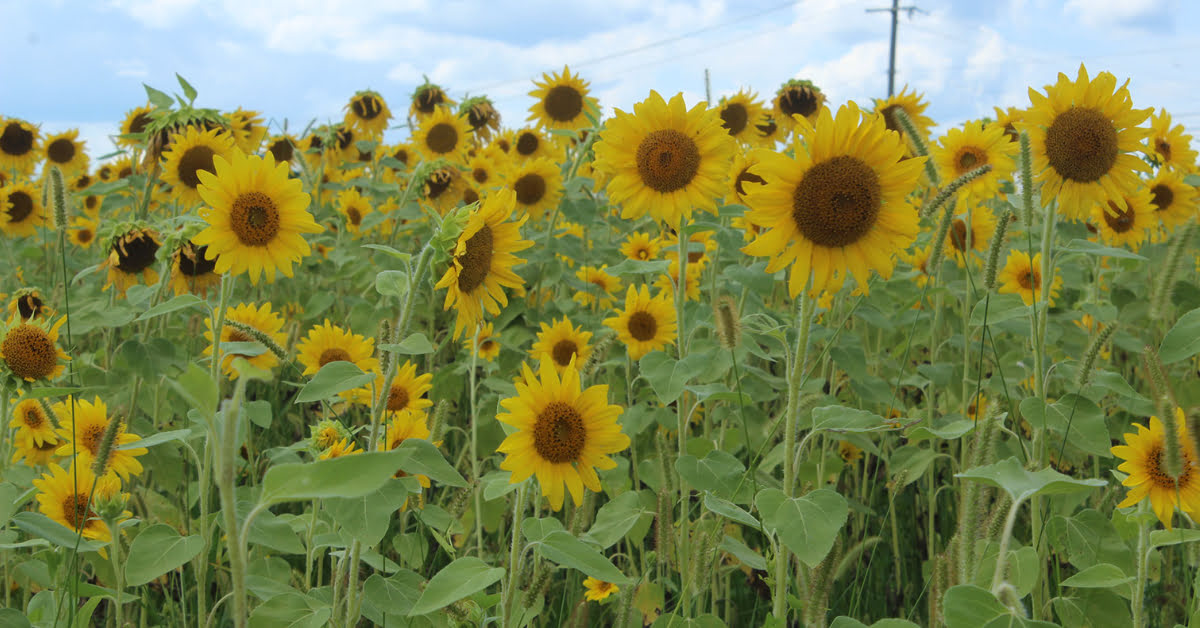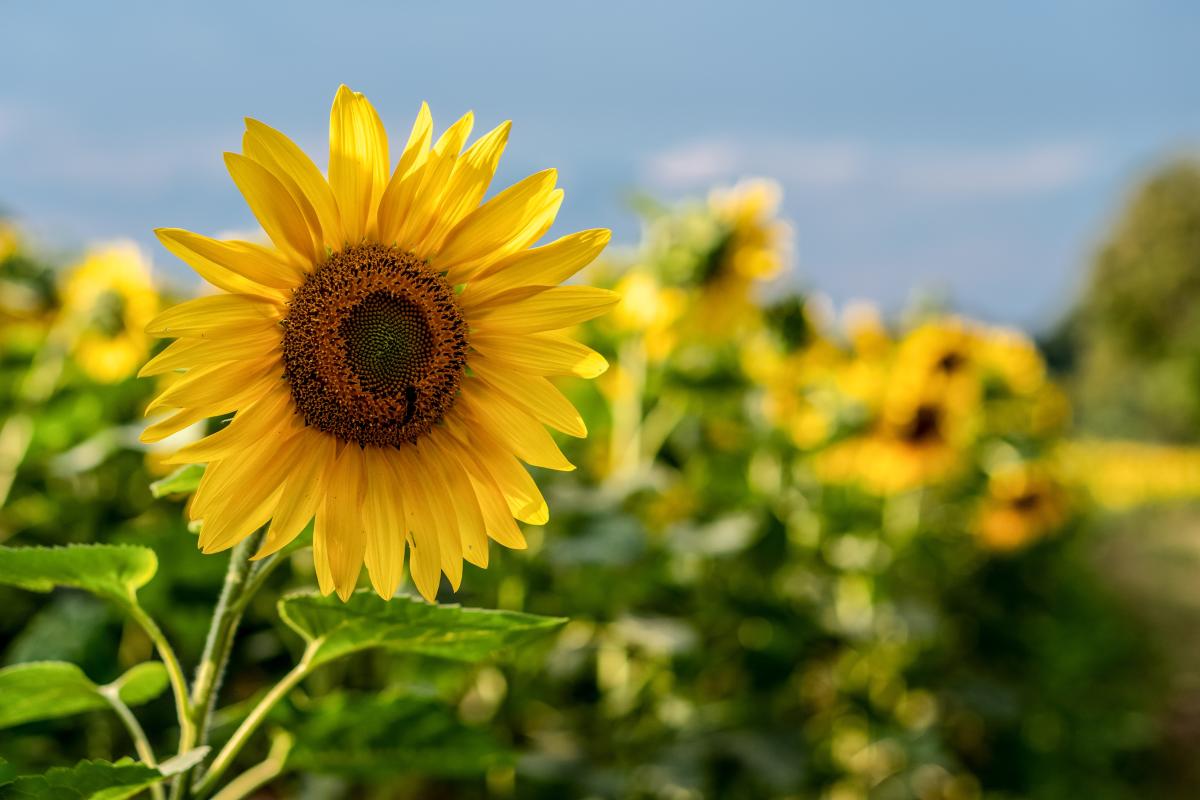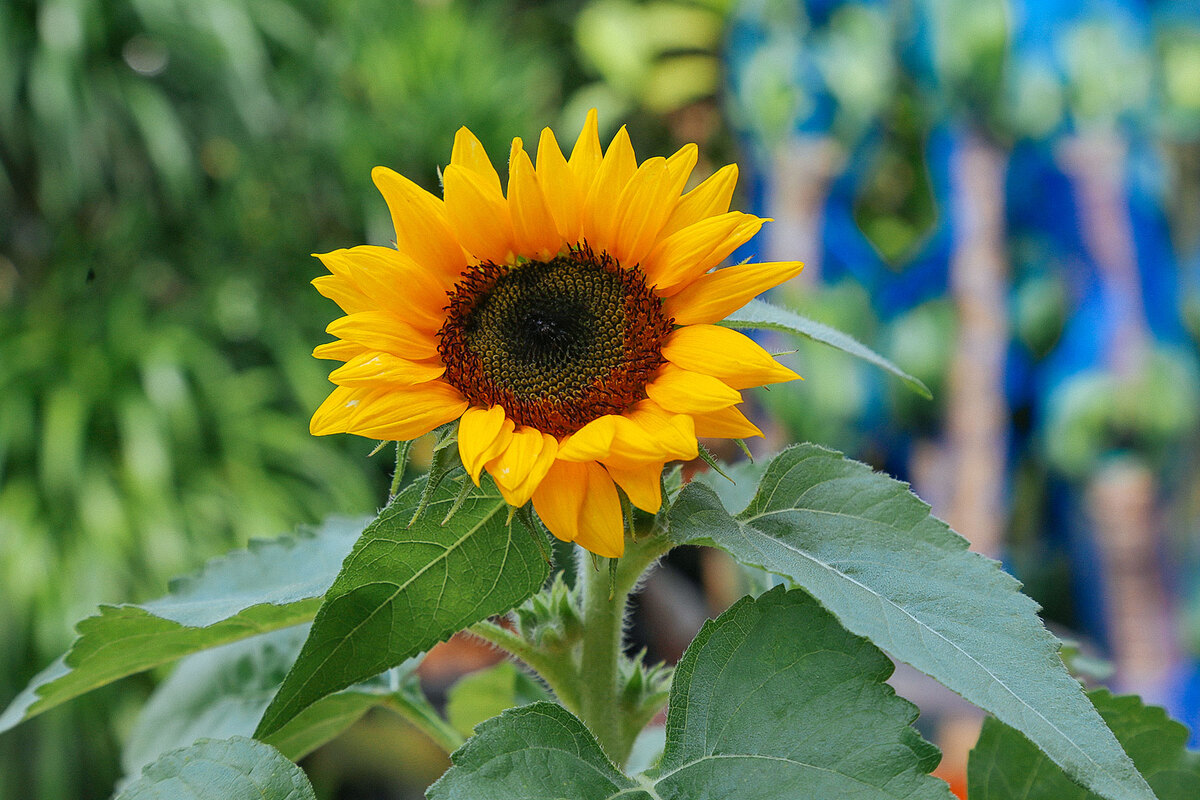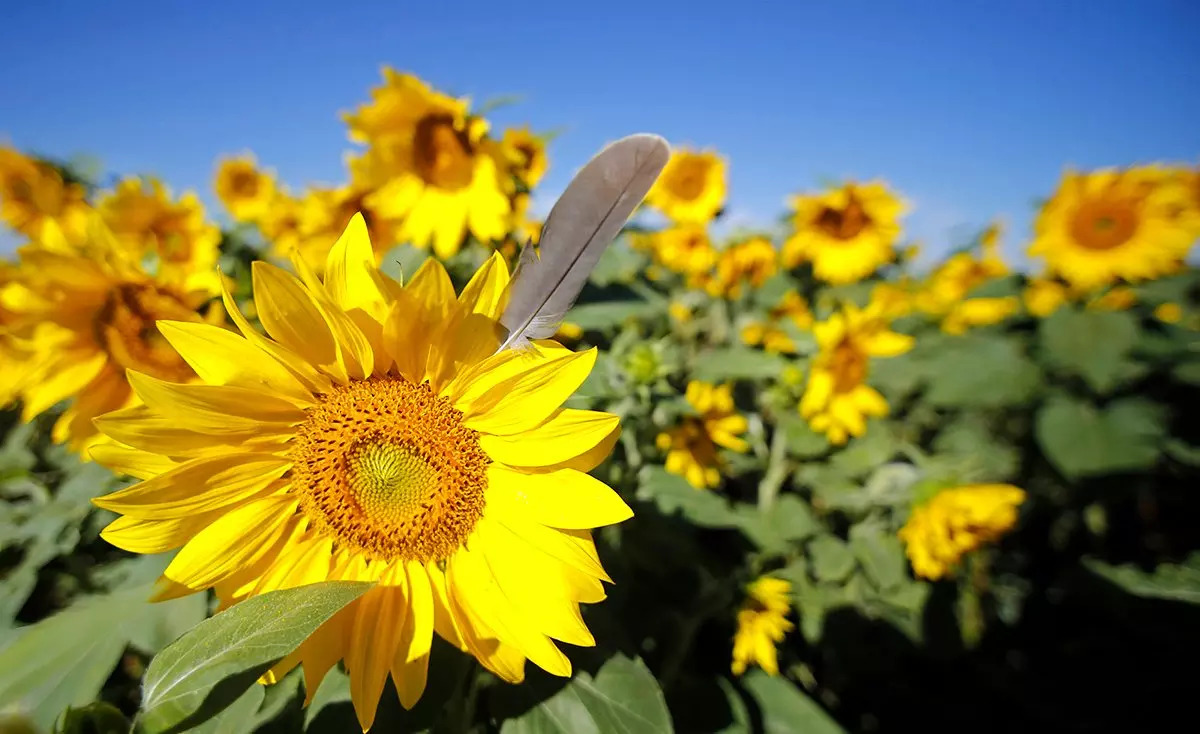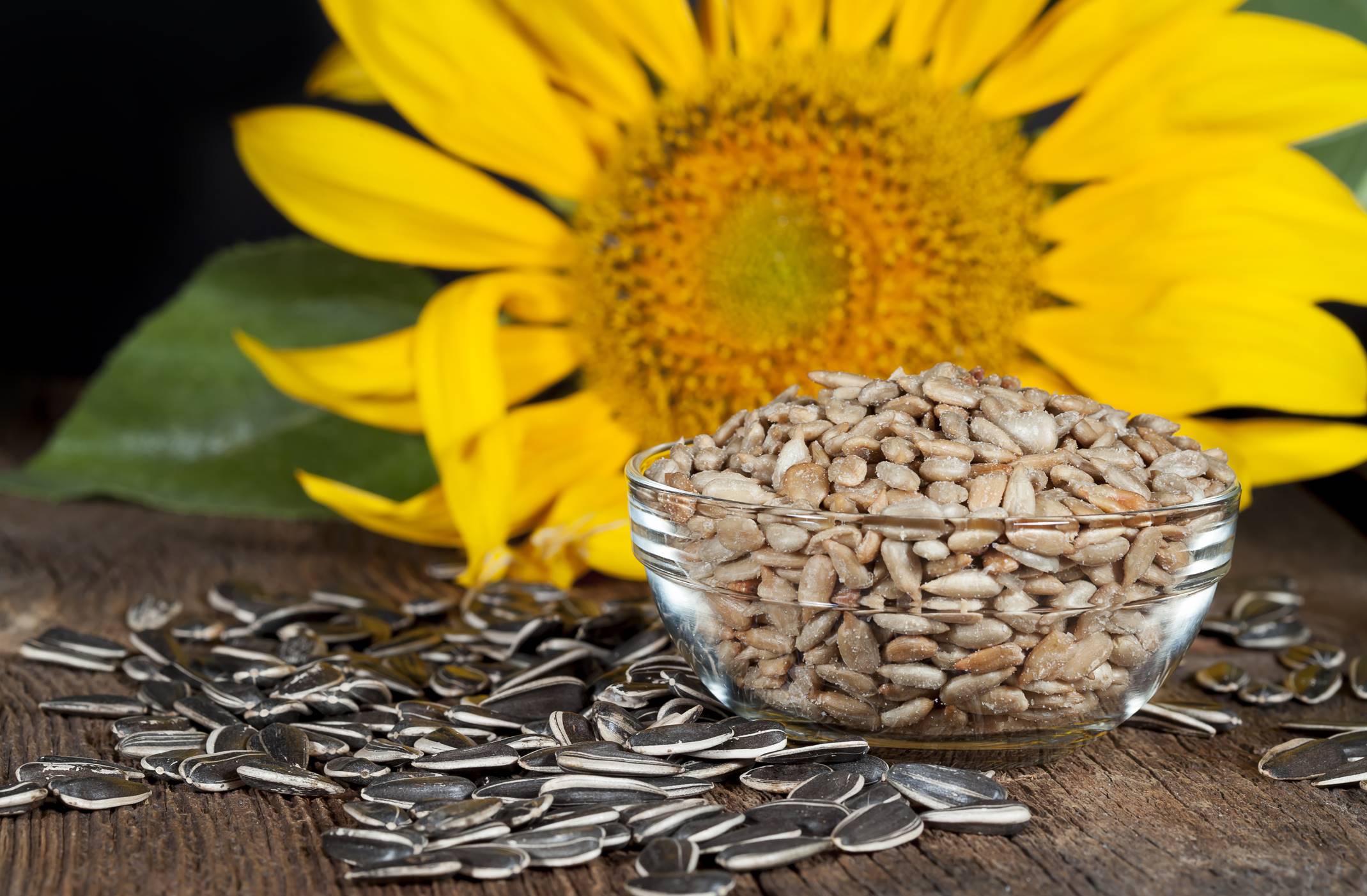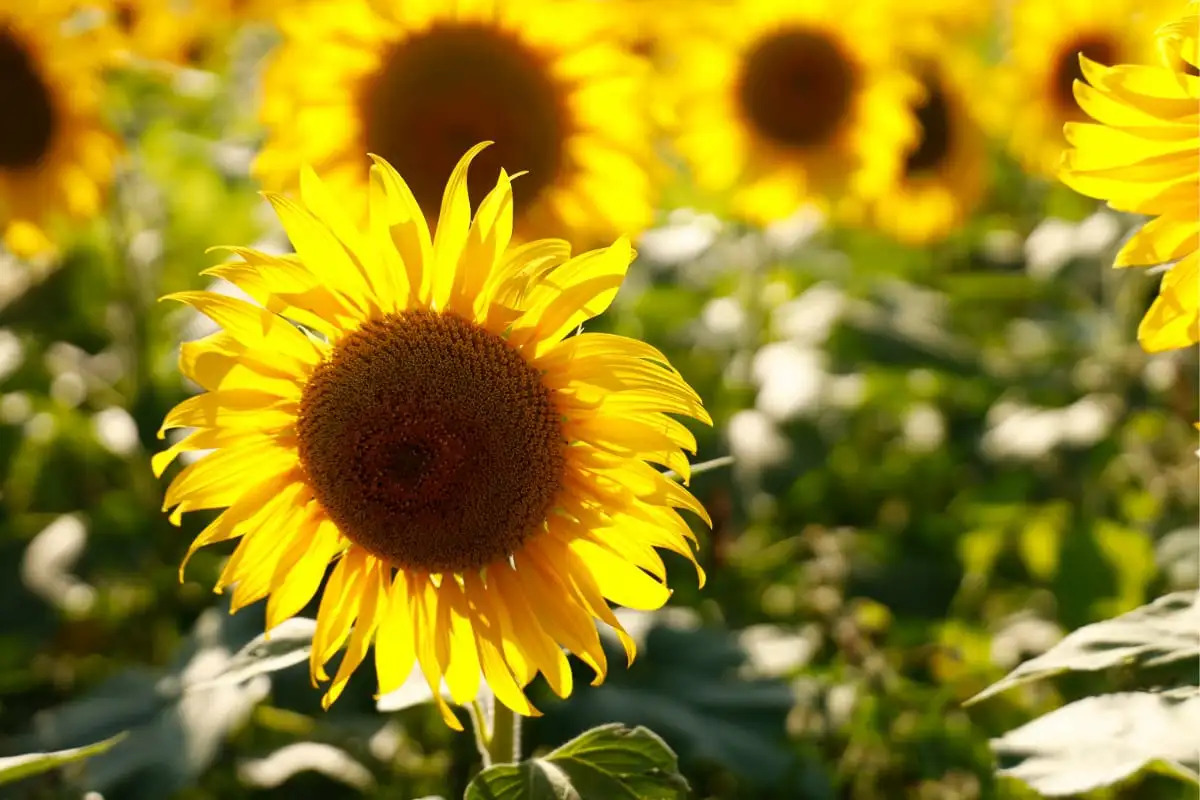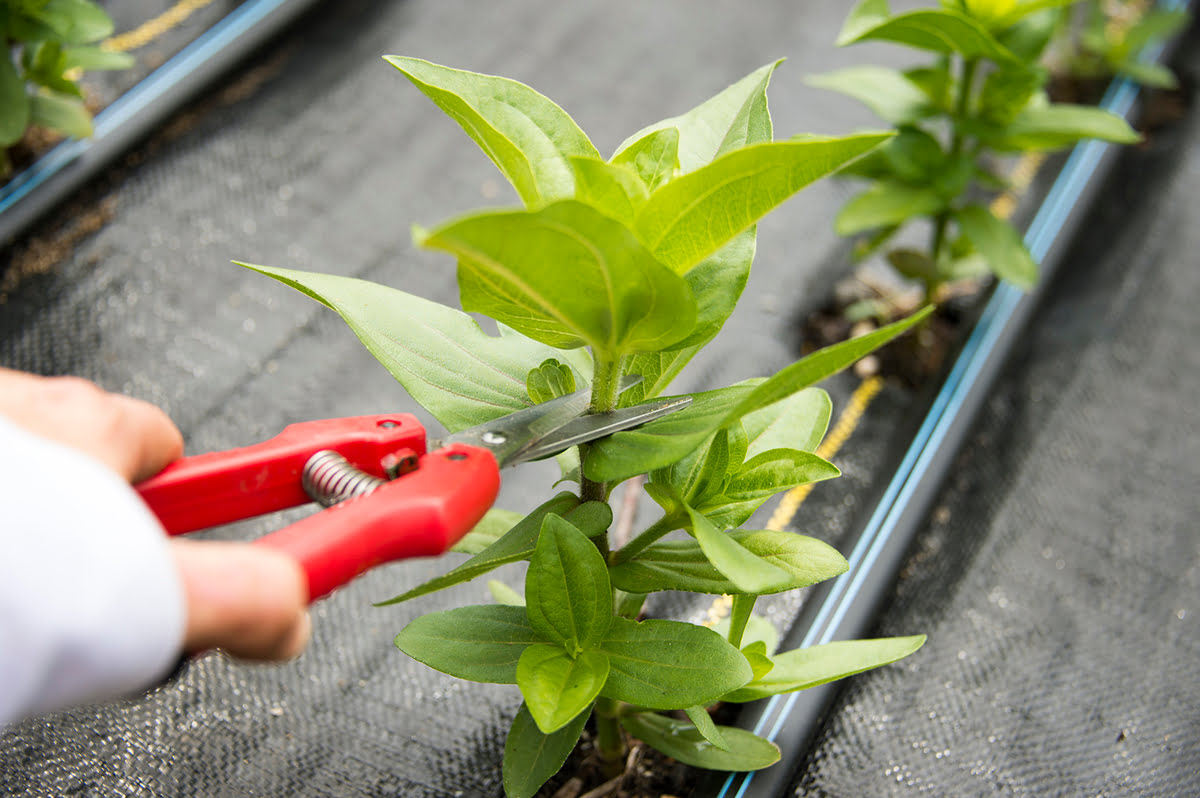Home>Types of Gardening>Ornamental Gardening>When To Plant Sunflowers In Nj


Ornamental Gardening
When To Plant Sunflowers In Nj
Modified: January 22, 2024
Discover the best time to plant sunflowers in NJ for a stunning ornamental garden. Get expert tips and advice for successful ornamental gardening in New Jersey.
(Many of the links in this article redirect to a specific reviewed product. Your purchase of these products through affiliate links helps to generate commission for Chicagolandgardening.com, at no extra cost. Learn more)
Table of Contents
Introduction
Welcome to the beautiful world of ornamental gardening! If you’re a gardening enthusiast in New Jersey, you’re in for a treat. One of the most stunning and vibrant flowers that you can grow in your garden is the sunflower. With their large, cheerful blooms and tall stalks that reach for the sky, sunflowers can add a touch of majesty to any landscape.
Sunflowers are not only visually appealing, but they also offer a multitude of benefits. They attract pollinators like bees and butterflies, provide a source of food for birds, and can even be harvested for their nutritious seeds. Whether you have a sprawling garden or just a small backyard, sunflowers can be a delightful addition to your outdoor space.
However, before you embark on your sunflower-growing journey, there are a few factors you need to consider. Sunflowers have specific requirements in terms of soil, sunlight, and climate. By understanding these factors and planning accordingly, you can ensure the success of your sunflower garden in New Jersey.
In this article, we will explore the best time to plant sunflowers in NJ, provide step-by-step instructions on how to plant them, offer helpful tips for growing healthy sunflowers, and discuss common pests and diseases to watch out for. So, put on your gardening gloves and let’s get started on creating a stunning sunflower haven!
Factors to Consider Before Planting Sunflowers in NJ
Before diving into the world of sunflower cultivation, it’s important to consider a few key factors that can significantly impact the success of your plants. By understanding these factors and making the necessary preparations, you can ensure that your sunflowers thrive in the Garden State.
First and foremost, soil quality plays a crucial role in the growth of sunflowers. They prefer well-drained soil with a pH level between 6.0 and 7.5. Before planting, it’s a good idea to test your soil’s pH level and make any necessary adjustments by adding organic matter or soil amendments.
Sunflowers are known for their love of sunlight. They require at least 6 to 8 hours of direct sunlight each day. Therefore, it’s important to choose a location in your garden that receives ample sunlight throughout the day. Take note of any structures or trees that may cast shadows and hinder sunlight exposure for your sunflowers.
New Jersey’s climate can vary, so it’s essential to select sunflower varieties that are suitable for your specific USDA hardiness zone. The ideal range for sunflowers in New Jersey is typically Zones 5 to 8. Make sure to check the specific recommendations for each sunflower variety you choose to ensure that it will thrive in your area.
Another factor to consider is the space available for your sunflowers to grow. Sunflowers can reach impressive heights, typically ranging from 3 to 10 feet tall. Ensure that you have enough space for the desired variety you plan to grow and provide sufficient distance between each plant to allow for proper air circulation.
Lastly, it’s important to be mindful of any potential obstructions or competition for resources. Sunflowers have an extensive root system, so avoid planting them near structures, such as fences or building foundations, as their roots can cause damage over time. Additionally, remove any weeds or competing vegetation in the planting area to give your sunflowers the best chance to flourish.
By considering these factors, you can create a suitable environment for your sunflowers to grow and thrive. Now that we’ve covered the necessary groundwork, let’s move on to the best time to plant sunflowers in NJ and get those beauties in the ground!
Best Time to Plant Sunflowers in NJ
In New Jersey, the best time to plant sunflowers is typically in late spring or early summer when the soil has warmed up and all chances of frost have passed. This is usually around mid-May to early June. Planting during this period ensures that the sunflowers have enough time to grow and mature before the arrival of cooler fall temperatures.
It’s important to note that the specific planting dates may vary depending on the sunflower variety you choose. Some varieties have shorter growing seasons and can be planted later in the summer, while others require a longer growing period and should be planted earlier.
Before planting, prepare the soil by removing any weeds or debris and loosening it to a depth of at least 6 inches. You can also add compost or well-rotted organic matter to improve the soil’s fertility and drainage.
When it comes to planting sunflowers, there are a few methods you can choose from. You can either sow the seeds directly into the ground or start them indoors and transplant them later. Sowing the seeds directly is the most common method and works well for most sunflower varieties.
If you choose to sow the seeds directly, plant them about 1 to 2 inches deep in the soil, spacing them 6 to 12 inches apart, depending on the variety’s recommended spacing. Cover the seeds with soil and gently pat it down. Water the area thoroughly after planting to help the seeds settle in.
For transplants, start the seeds indoors about 2 to 4 weeks before the last expected frost date. Plant them in biodegradable pots, such as peat pots, to minimize root disturbance when transplanting them outdoors. Once the danger of frost has passed, carefully plant the seedlings in the prepared soil, ensuring they are at the same depth as they were in the pots.
Keep in mind that sunflowers are hardy plants and can tolerate a wide range of conditions. However, they still require regular watering, especially during dry spells, to promote healthy growth. Water the plants deeply but avoid overwatering, as excessive moisture can cause root rot.
By planting sunflowers at the optimal time and ensuring proper care, you can enjoy a vibrant and flourishing sunflower garden in the beautiful state of New Jersey.
Steps to Plant Sunflowers in NJ
Planting sunflowers in your New Jersey garden is a fun and rewarding experience. Follow these simple steps to ensure successful growth and vibrant blooms:
- Choose the right location: Select a spot in your garden that receives full sun for at least 6 to 8 hours a day. Sunflowers thrive in direct sunlight, so make sure there are no obstructions that may cast shadows on your plants.
- Prepare the soil: Clear the area of any weeds or vegetation. Loosen the soil to a depth of 6 inches and remove any debris. Adding compost or organic matter can improve soil fertility and drainage.
- Select the sunflower variety: Consider the height, color, and bloom size you desire. There are different varieties available, ranging from dwarf varieties suitable for small spaces to towering giants that can reach impressive heights.
- Sow or transplant: Depending on your preference, you can either sow sunflower seeds directly into the ground or start them indoors and transplant seedlings. Follow the specific instructions on the seed packet for sowing depth and spacing.
- Water adequately: After planting, water the area thoroughly to settle the soil and provide moisture for germination. Sunflowers require regular watering, especially during dry spells. Water deeply but avoid overwatering to prevent root rot.
- Provide support: As sunflowers grow, they can become top-heavy and may require staking or support. Install stakes or a trellis system early on to prevent plants from bending or toppling over.
- Maintain and care for your sunflowers: Remove weeds regularly to prevent competition for resources. Monitor for pests and diseases, such as aphids or powdery mildew, and take appropriate measures to prevent or treat them.
- Harvest and enjoy: Once your sunflowers have matured and the flower heads have dried out, you can harvest them for seeds or enjoy the vibrant blooms in your garden. Simply cut the heads off and hang them in a dry, well-ventilated area to dry completely.
By following these steps, you’ll embark on a successful sunflower-growing journey in New Jersey. Remember to enjoy the process and take delight in the beauty that sunflowers bring to your garden.
Tips for Growing Sunflowers in NJ
Growing sunflowers in New Jersey can be a rewarding experience, but it’s always helpful to have some expert tips to ensure your sunflowers thrive. Here are some valuable tips to help you grow healthy and vibrant sunflowers:
- Choose the right variety: Consider the height, color, and bloom size you desire, and select a sunflower variety that suits your preferences and growing conditions.
- Optimize soil conditions: Before planting, make sure your soil is well-drained and has a pH level between 6.0 and 7.5. Adding organic matter, such as compost, can improve soil fertility and structure.
- Water appropriately: Sunflowers require regular watering, especially during dry spells. Water deeply to encourage deep root growth, but avoid overwatering, as it can cause root rot.
- Provide adequate spacing: Give your sunflowers enough space to grow and receive proper air circulation. This helps prevent the spread of diseases and allows each plant to access sunlight and nutrients.
- Support tall varieties: If you’re growing tall sunflower varieties, consider providing support through stakes or a trellis system to prevent them from bending or toppling over in strong winds.
- Monitor for pests: Keep an eye out for common sunflower pests, such as aphids and caterpillars. Regularly inspect your plants and take appropriate measures, such as hand-picking or using organic pest control methods, to keep pest populations under control.
- Protect against diseases: Sunflowers can be susceptible to diseases like powdery mildew and downy mildew. To prevent these diseases, ensure good air circulation, avoid overhead watering, and remove any infected plant parts promptly.
- Deadhead spent flowers: Removing the faded or dead sunflower heads not only keeps your garden neat and tidy but also encourages the plant to divert its energy into producing more flowers or larger seeds.
- Harvest seeds at the right time: If you’re growing sunflowers for seeds, allow the flower heads to fully mature and dry on the stalk. The back of the flower head should turn brown, and the seeds should be firm and plump before harvesting.
- Enjoy the beauty: While growing sunflowers, take time to appreciate their stunning beauty. Whether in your garden or as cut flowers in a vase, sunflowers bring joy and a touch of sunshine to any space.
By following these tips and incorporating them into your sunflower-growing routine, you’ll set yourself up for success in cultivating healthy and magnificent sunflowers in the garden of your New Jersey home.
Common Sunflower Pests and Diseases in NJ
While sunflowers are relatively low-maintenance plants, they can still be susceptible to certain pests and diseases. Being aware of these common issues in New Jersey can help you take preventive measures and tackle them effectively. Here are some pests and diseases to watch out for:
- Aphids: These small, soft-bodied insects can cluster on the underside of sunflower leaves and suck sap from the plant. To control aphids, you can try spraying a strong jet of water to wash them off or use insecticidal soap.
- Caterpillars: Caterpillars, such as the sunflower moth larvae or painted lady caterpillars, can feed on sunflower foliage, causing damage. Regularly inspect your plants for larvae and handpick them if feasible. You can also use organic insecticides or biological controls if the infestation is severe.
- Powdery Mildew: Powdery mildew is a fungal disease that affects many plants, including sunflowers. It causes a powdery white coating on leaves, stems, and flower heads. To prevent powdery mildew, provide good airflow around plants, avoid overhead watering, and plant resistant varieties.
- Downy Mildew: Downy mildew is another fungal disease that can affect sunflowers. It causes yellow spotting on leaves and a fuzzy, grayish growth on the undersides. Remove and destroy infected plant parts, improve air circulation, and avoid excessive moisture to control downy mildew.
- Botrytis Blight: Botrytis blight, or gray mold, is a common fungal disease that affects sunflower plants during periods of high humidity. It causes fuzzy gray mold on infected plant parts. Remove and destroy affected plant material, provide good ventilation, and avoid overwatering to prevent botrytis blight.
- Verticillium Wilt: Verticillium wilt is a soil-borne fungal disease that affects a wide range of plants, including sunflowers. It causes wilting, yellowing, and eventually death of the plant. Choose disease-resistant varieties and practice crop rotation to manage verticillium wilt.
Monitoring your sunflowers regularly for signs of pests and diseases is crucial. Early detection allows you to take swift action and implement appropriate control measures. Remember to always follow the instructions on the labels of any organic or chemical products you use to ensure safe and effective control.
By being proactive and practicing good garden hygiene, you can minimize the impact of pests and diseases on your sunflowers and help them flourish throughout the growing season in New Jersey.
Harvesting Sunflowers in NJ
One of the most rewarding aspects of growing sunflowers in New Jersey is the opportunity to harvest their beautiful blooms and nutritious seeds. Knowing the right time and proper techniques for harvesting will ensure the best results. Here are some tips for harvesting sunflowers:
- Flower Heads: If you’re growing sunflowers for their stunning blooms, wait until the flower heads are fully mature. The petals will start to wilt, and the back of the flower head will turn brown. Cut the flowers with a sharp, clean pair of pruning shears, leaving about 12 to 18 inches of stem.
- Seeds: If you’re growing sunflowers for their seeds, allow the flower heads to stay on the stalk until they are fully dry. The back of the flower head should turn brown, and the seeds should be firm and plump. To harvest the seeds, cut the flower head from the stalk, leaving a few inches of stem attached.
- Drying: After harvesting, it’s essential to dry the sunflower heads thoroughly before storage. Hang the flower heads upside down in a dry and well-ventilated area, such as a shed or garage, for about two to three weeks. This allows the seeds to fully mature and dry out.
- Seed Removal: Once the flower heads are completely dry, gently rub or shake them to separate the seeds from the dried flower head. You can use your hands or a clean cloth to help remove the seeds. Avoid using excessive force, as it may damage the seeds.
- Storage: Store the harvested sunflower seeds in airtight containers, such as glass jars or resealable bags, in a cool, dry, and dark place. This helps maintain their quality and viability. Remember to label the containers with the date of harvest and variety name, if applicable.
- Enjoying: Sunflower seeds can be enjoyed as a tasty and nutritious snack or used in various culinary dishes. You can roast them for a crunchy treat or add them to salads, granola, or baked goods for an extra burst of flavor and texture.
Harvesting sunflowers at the right time ensures optimal seed development and flower quality. Enjoy the beauty of the fresh blooms and the deliciousness of the harvested seeds as you reap the rewards of your hard work in your New Jersey garden.
Conclusion
Congratulations! You are now equipped with the knowledge and tips needed to successfully grow and harvest sunflowers in the beautiful state of New Jersey. By considering factors such as soil quality, sunlight, and climate, you can create an ideal environment for these stunning flowers to thrive.
Remember, the best time to plant sunflowers in NJ is in late spring or early summer when the soil has warmed up and the threat of frost has passed. Whether you choose to sow the seeds directly into the ground or start them indoors, providing proper care and maintenance throughout their growth journey is key.
Keep an eye out for common pests and diseases, such as aphids, caterpillars, powdery mildew, and botrytis blight. Regular monitoring, early detection, and appropriate treatment methods will help keep your sunflowers healthy and vibrant.
When it’s time to harvest, enjoy the process of cutting the mature flower heads for display or collecting the dried heads for seed extraction. Properly drying and storing the seeds ensures their long-term viability and allows you to enjoy their nutritional benefits in various culinary endeavors.
Sunflowers not only add a touch of majesty and beauty to your garden but also provide numerous benefits, from attracting pollinators to serving as a food source for wildlife. So, take joy in the process and savor the rewards that come with growing these incredible flowers.
Now it’s time to roll up your sleeves, get your hands dirty, and immerse yourself in the world of sunflower gardening. Embrace the beauty, the challenges, and the fulfillment that come with cultivating these magnificent blooms in the Garden State of New Jersey.
